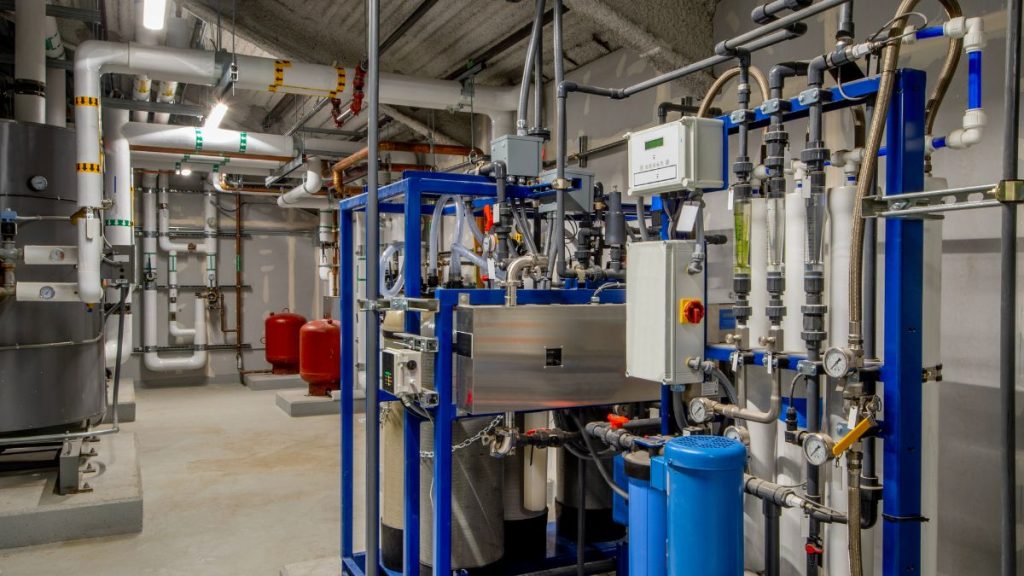Precise chemical control is one of the most critical aspects of any water treatment process. From coagulation to disinfection, each stage depends on the accurate introduction of chemicals at the right concentration and flow rate. The vital components ensuring this precision is the dosing pump.
This specialized pump is designed to inject exact amounts of chemicals or additives into a water stream, making it indispensable for industries that require consistency, reliability, and compliance with water quality standards. Whether for industrial, municipal, or commercial applications, dosing pumps have become the backbone of effective water treatment solutions.
Why Dosing Pumps Are Important in Water Treatment
Water treatment is not just about filtering impurities; it involves a wide range of processes that require chemical intervention. Chemicals such as coagulants, flocculants, disinfectants, pH adjusters, and scale inhibitors all play a role in ensuring water meets the required quality standards. However, adding these chemicals is not as simple as pouring them in. It requires precise control. That is where dosing pumps become essential.
1. Accuracy in Chemical Injection
The greatest strength of a dosing pump lies in its ability to deliver exact quantities of chemicals. Too little chemical dosing results in ineffective treatment, while overdosing can lead to operational inefficiencies, higher costs, and even safety risks. A dosing pump ensures that the precise amount of chemical is consistently added, helping maintain balance in the system.
2. Consistency and Reliability
Industrial processes demand stability. A dosing pump delivers a continuous and predictable flow rate, which ensures that water treatment systems function smoothly without sudden disruptions. This reliability protects both the equipment and the treated water quality.
3. Cost Efficiency
Without accurate dosing, plants risk wasting expensive treatment chemicals. By using a dosing pump, companies can significantly reduce chemical consumption and improve operational efficiency. Over time, this translates into cost savings and better sustainability practices.
4. Compliance with Standards
In industries like food and beverage, pharmaceuticals, and municipal water supply, compliance with strict water quality standards is non-negotiable. Dosing pumps enable organizations to meet regulatory requirements by ensuring that chemical dosing remains within acceptable limits.
5. Protection of Equipment and Systems
Water that is not properly treated can cause scaling, corrosion, or microbial growth, damaging expensive infrastructure. A dosing pump helps prevent these issues by ensuring that protective chemicals are consistently present in the right concentrations.
Read Also: The Role of pH Controller in Boiler Systems
Applications of Dosing Pumps in Water Treatment
Dosing pumps are versatile tools used across a wide range of applications in water treatment systems. Their role extends beyond one type of process, making them integral to multiple stages of water purification and wastewater management.
1. Disinfection
One of the most common uses of a dosing pump is in the injection of disinfectants such as chlorine, sodium hypochlorite, or chlorine dioxide. Accurate disinfection is crucial for eliminating pathogens and ensuring water safety. Overdosing can lead to harmful by-products, while underdosing can leave dangerous microorganisms untreated.
2. pH Adjustment
Maintaining the correct pH level in water is essential for both process efficiency and equipment protection. A dosing pump is used to inject acids or alkalis in carefully controlled amounts, ensuring that the water remains within the desired pH range. This is particularly important in cooling towers, boilers, and food processing industries.
3. Coagulation and Flocculation
In raw water treatment, dosing pumps are responsible for injecting coagulants (such as PAC or alum) and flocculants into the system. These chemicals help bind suspended particles together, allowing them to be removed more easily in subsequent filtration stages. Precise dosing is critical, as underdosing can leave turbidity unresolved, while overdosing can affect downstream processes.
4. Scale and Corrosion Control
Industrial equipment such as boilers, heat exchangers, and cooling systems are highly vulnerable to scaling and corrosion. Dosing pumps are used to inject scale inhibitors and corrosion inhibitors, extending the lifespan of equipment and reducing maintenance costs.
5. Wastewater Treatment
In wastewater treatment plants, dosing pumps play an important role in neutralization, sludge conditioning, and odor control. For example, lime or caustic soda may be dosed to adjust pH, while polymers are added to improve sludge dewatering. Without dosing pumps, managing these processes with accuracy would be nearly impossible.
6. Specialty Applications
- Food and Beverage: Ensuring water safety and compliance with hygienic standards.
- Pharmaceuticals: High-precision dosing for ultrapure water systems.
- Power Plants: Protecting cooling towers and boilers from chemical imbalances.
Conclusion
A dosing pump is more than just a piece of equipment; it is the heart of precise chemical management in water treatment systems. But to keep it working at peak performance, you need more than the pump itself.
That’s where Lautan Air Indonesia can support you: from helping you select the right dosing pump, to integrating it into your system, to providing regular calibration and maintenance. Our service ensures your dosing pumps run reliably for years.
Looking to optimize your dosing system? Talk to Lautan Air Indonesia’s experts today.



